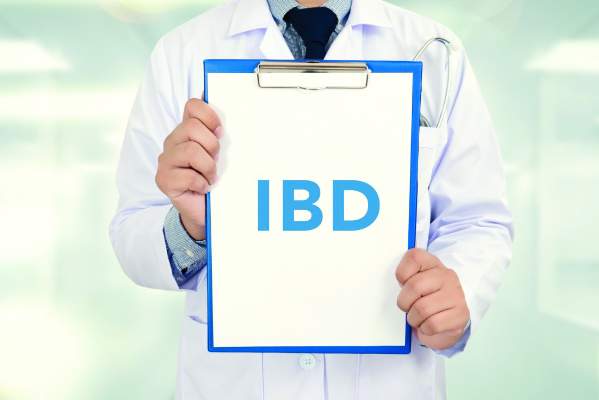AT AIBD 2016
ORLANDO (FRONTLINE MEDICAL NEWS) – In a study of 644 people with moderate to severe inflammatory bowel disease treated with vedolizumab (Entyvio, Takeda Pharmaceuticals), 346 achieved remission or a significant response. This 54% response rate includes 192 people with Crohn’s disease and 154 others with ulcerative colitis.
However, after a median of 143 days, some of the initial responders experienced a loss of response to vedolizumab therapy.
“In our real-world study of vedolizumab use in patients with IBD predominantly refractory to anti-TNF [tumor necrosis factor] therapy, loss of response was observed in about 40% of patients at 12 months,” said Eugenia Shmidt, MD, a gastroenterology fellow at the Icahn School of Medicine at Mount Sinai hospital in New York City.
To counter the loss of response, Dr. Shmidt and her colleagues shortened the dosing interval of vedolizumab to either 4 or 6 weeks in a subgroup of 36 patients who lost response. They also shortened the dosing interval to try to attempt an initial response in a subgroup of 47 people who did not respond in the first place. “Dose intensification led to a successful recapture of response in 32% of patients who had initial response and in 19% of patients who did not have an initial response,” Dr. Shmidt said at the Advances in Inflammatory Bowel Diseases meeting.
“We find it interesting that there was greater success in recapturing significant response in patients who responded to vedolizumab initially compared to those who did not initially respond,” she said when asked if she found any of her findings surprising. “This emphasizes a likely need for different management strategies for initial vedolizumab responders and nonresponders, as well as early recognition of the need for dose optimization,” she added.
A total 76 of the 346 patients who initially responded experienced loss of response. The investigators calculated a “very conservative” rate for loss of response of 41% in the Crohn’s disease group and 42% in the ulcerative colitis group. This cumulative rate is based on Kaplan Meier curves that account for loss to follow-up of any patient by 12 months. In other words, although all study participants had at least one follow-up assessment to gauge response, not every patient had complete 12 month follow-up data after achieving response or remission.
The study included adults with mild to moderate inflammatory bowel disease, based on clinical factors or confirmed through endoscopy. There were no significant differences in severity of disease between patients who were able to recapture response versus those were not. The mean age among the 374 participants with Crohn’s disease was 39 years; similarly, the mean age in the group of 270 with ulcerative colitis was 41 years. Mean duration of disease was 15 years and 9 years in the two groups, respectively.
To identify risk factors associated with loss of response to vedolizumab, Dr. Shmidt and her colleagues performed univariable and multivariable Cox proportional hazard analyses. They found concomitant use of an immunomodulator for Crohn’s disease was protective against loss of response (hazard ratio, 0.44). In the ulcerative colitis group, a baseline serum albumin level below a normal value achieved lower vedolizumab response rates; a value below 3.2 g/dL was an independent predictor of cumulative loss of response over time (HR, 2.39).
Inflammatory bowel disease patients treated at higher volume centers, which were defined as enrolling at least 100 patients in the study, had higher rates of loss of response to vedolizumab (HR, 1.92 on multivariable analysis).
The multicenter VICTORY consortium coinvestigators in this study are affiliated with Mayo Clinic in Rochester, Minn.; Cleveland Clinic Foundation in Ohio; University of California, San Diego; New York University in New York City; Montefiore Medical Center/Albert Einstein College of Medicine in the Bronx, N.Y.; and Dartmouth-Hitchcock Medical Center in Lebanon, N.H.
Future studies are warranted to evaluate the pharmacodynamics and pharmacokinetics of vedolizumab, the authors noted, as well as to determine an optimal dosing strategy among people with high drug clearance.
The study was funded in part by Takeda Pharmaceuticals. Dr. Eugenia Shmidt did not have any relevant disclosures. The meeting was sponsored by the Crohn’s & Colitis Foundation of America.




